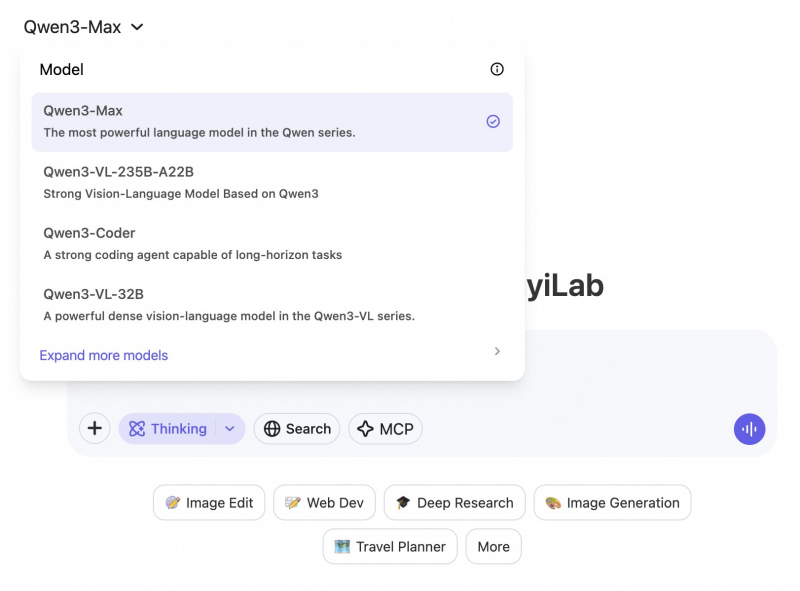● Alibaba's Tongyi Lab recently rolled out Qwen3-Max-Thinking-Preview, a reasoning-focused AI model now live on Qwen Chat. As the flagship of the Qwen3 lineup, it introduces a "Thinking" mode that tackles complex, multi-step problems with deeper analytical power — a significant step forward in Alibaba's AI development.

● The "Thinking" feature gives the model long-range reasoning abilities, letting it assess context on the fly and solve abstract challenges. But there's a catch: advanced reasoning demands serious computing power, which could drive up costs and energy use. Keeping performance snappy while scaling to enterprise users will test Alibaba's infrastructure chops.
● Qwen3-Max-Thinking sharpens Alibaba's edge in the global AI arena. By baking sophisticated reasoning into Qwen Chat, Alibaba is targeting corporate clients in finance, research, and automation — areas where structured thinking pays off. This could boost Alibaba Cloud's revenue through AI subscriptions. To control costs, the company will likely use mixed-precision training and custom optimizations to keep the model efficient.
● This launch is part of a broader Qwen3 expansion that includes Qwen3-VL-235B-A22B (a vision-language model) and Qwen3-Coder (a coding specialist). Together, they're shifting Alibaba from basic AI assistants to specialized reasoning agents. The move also underscores China's surging AI innovation as local developers close the gap with Western platforms.
 Usman Salis
Usman Salis

 Usman Salis
Usman Salis


